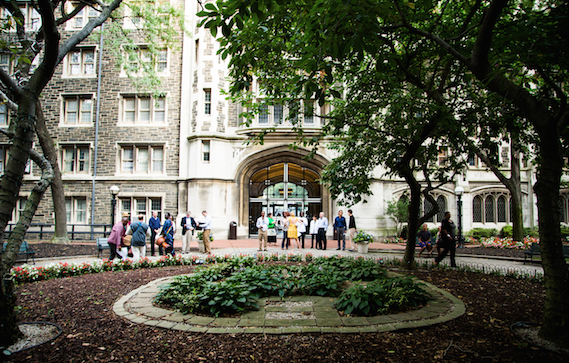Union Theological Seminary
Union Theological Seminary has always embodied the freedom to learn and the freedom to teach—ideals that may be more critical than ever to churches and society at this moment in history. Founded in 1836, Union forged a new vision for theological education: to center ministerial training in an urban context so that academic excellence and personal faith might respond to the needs of the city.

Today, a new Union in a world city remains faithful to that vision. With roots that are firmly planted in the Protestant, Reformed tradition, the Seminary continues to reform itself in response to the changing needs of the world and an evolving understanding of what it means to be faithful.
Mission
Union Theological Seminary in the City of New York is a seminary and a graduate school of theology established in 1836 by founders “deeply impressed by the claims of the world upon the church.” Union prepares women and men for committed lives of service to the church, academy, and society. A Union education develops practices of mind and body that foster intellectual and academic excellence, social justice, and compassionate wisdom. Grounded in the Christian tradition and responsive to the needs of God’s creation, Union’s graduates make a difference wherever they serve.
Vision
Education at Union Theological Seminary is deeply rooted in a critical understanding of the breadth of Christian traditions yet significantly instructed by the insights of other faiths. It makes connections between these traditions and the most profoundly challenging issues of our contemporary experience: the realities of suffering and injustice, world religious pluralism, the fragility of our planet, and discoveries of modern science. Union envisions a future in which teaching and learning continues to be ecumenical in spirit, supporting a record of academic excellence and a deep commitment to social justice. Union envisions its graduates changing the world by practicing their vocations with dedication to the mission of the churches and leadership in the academy and society, ever seeking to bring a religiously grounded, critical and compassionate presence to the major personal, social, political and scientific realities of our time.